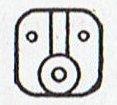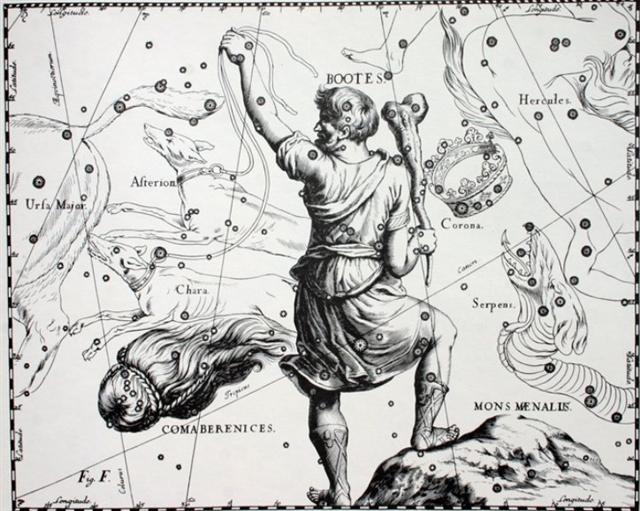Once again. The important insight is
that the creator of the G text had to put Aldebaran 4
days later than at the time of Gregory XIII. Therefore
the beginning of side a of his tablet had Aldebaran (Ana-muri)
as glyph 4 instead of at the zero position, which (ceteris
paribus) would have been the case had he made his tablet at the
time of Gregory XIII:
|
day zero |
 |
 |
 |
 |
|
HYADUM II |
Ga1-1 |
Ga1-2 |
Ga1-3 |
Ga1-4 |
|
day zero |
 |
 |
 |
 |
 |
 |
|
ALDEBARAN |
Ga1-1 |
Ga1-2 |
Ga1-3 |
Ga1-4 |
Ga1-5 |
Ga1-6 |
|
Muri The
rear, that which comes last; a muri,
future; a muri noa atu, never;
i muri, afterward, henceforth,
hereafter; i muri oo na, to
accompany; ki muri, after,
future, henceforth, then, final; o
muri, last. Churchill. |
|
For the Maori the past is
an important and pervasive dimension of
the present and future. Often referred
to as the 'ever-present now', Maori
social reality is perceived as though
looking back in time from the past to
the present. The Maori word for 'the
front of' is
mua and this
is used as a term to describe the past,
that is, Nga wa o mua or the time
in front of us. Likewise, the word for
the back is
muri which is
a term that is used for the future.
Thus the past is in front
of us, it is known; the future is behind
us, unknown. The point of this is that
our ancestors always had their backs to
the future with their eyes firmly on the
past. Our past is not conceived as
something long ago and done with, known
only as an historical fact with no
contemporary relevance or meaning. In
the words of a respected Maori elder:
The present is a
combination of the ancestors and 'their
living faces' or genetic inheritors,
that is the present generations. Our
past is as much the face of our present
and future. They live in us … we live in
them.
Therefore, to understand
and appreciate Maori treasures one must
realize that they continue to stand tall
in front of us today. (Starzecka) |
Assuming the C text was created
approximately at the same time as the G text we
can now understand the otherwise curious
overflow from side a to side b of a sequence of
turtle (honu) and Rogo glyphs:
 |
 |
 |
|
*Ca14-24 |
*Ca14-25 |
ACHERNAR |
 |
 |
 |
|
*Ca14-27 |
*Ca14-28 |
POLARIS |
 |
 |
 |
|
SHERATAN |
Cb1-2 |
ALRISHA THUBAN |
 |
|
Cb1-4 (396) |
|
HAMAL
ALKES
|
Because thinking in terms of
the Gregorian calendar we will find
the beginning of side b at the Neck
in
°October 17 (290, *210):
|
1 |
Horn |
α Virginis (Spica) |
Crocodile |
(202.7) |
Oct 9 (282) |
282 = 265
+ 17 |
|
2 |
Neck |
κ Virginis |
Dragon |
(214.8) |
Oct 21 (294) |
294 = 282
+ 12 |
|
3 |
Root |
α Librae (Zuben Elgenubi) |
Badger |
(224.2) |
Oct 31 (304) |
304 = 295
+ 9 |
|
4 |
Room |
π Scorpii (Vrischika) |
Hare |
(241.3) |
Nov 17 (321) |
321 = 304
+ 17 |
|
5 |
Heart |
σ Scorpii |
Fox |
(247.0) |
Nov 23 (327) |
327 = 321
+ 6 |
|
6 |
Tail |
μ Scorpii (Denebakrab) |
Tiger |
(254.7) |
Nov 30 (334) |
334 = 327
+ 9 |
|
7 |
Winnowing Basket |
γ Sagittarii (Nash) |
Leopard |
(273.7) |
Dec 19 (353) |
353 = 334
+ 19 |
|
December solstice |
|
Egyptian hand |
 |
Phoenician kaph |
 |
Greek
kappa |
Κ
(κ) |
|
Kaph
is thought to have been
derived from a pictogram
of a hand (in both
modern Arabic and modern
Hebrew, kaph
means palm/grip) ...
... The manik,
with the tzab, or
serpent's rattles as
prefix, runs across
Madrid tz. 22 , the
figures in the pictures
all holding the rattle;
it runs across the
hunting scenes of Madrid
tz. 61, 62, and finally
appears in all four
clauses of tz. 175, the
so-called 'baptism'
tzolkin. It seems
impossible, with all
this, to avoid assigning
the value of grasping or
receiving. But in the
final confirmation, we
have the direct evidence
of the signs for East
and West. For the East
we have the glyph
Ahau-Kin, the Lord
Sun, the Lord of Day;
for the West we have
Manik-Kin, exactly
corresponding to the
term Chikin, the
biting or eating of the
Sun, seizing it in the
mouth.



The
pictures (from Gates)
show east, north, west,
and south; respectively
(the lower two glyphs)
'Lord' (Ahau) and
'grasp' (Manik).
Manik was the 7th
day sign of the 20 and
Ahau the last
... |
... According to Leonardo Pakarati,
'the neck of the turtle' was the birthplace of the youngest son, Tuu Hotu
Iti... (The Eighth Island)
This time has
obviously been marked
by the creator of the C text - and
also in the comments of Metoro - as a
very special place:
|
°April 17 (107)
|
18 (*28) |
19 |
rutua
- te pahu - rutua te
maeva - atua rerorero -
atua hiko ura - hiko o
tea - ka higa te ao ko
te henua ra ma te hoi
atua |
|
°October 17 (290) |
18
(*211) |
19 |
|
April 21 (111)
|
22 (*32) |
23 |
|
October 21 (*214) |
22 (295) |
23 |
 |
 |
 |
|
Cb1-5 |
Cb1-6 (398) |
Cb1-7 |
|
η Arietis (31.9) |
ξ¹ Ceti
(32.1) |
χ Persei (33.2), θ
Arietis (33.3),
MIRA = ο Ceti
(33.7) |
|
Neck-2 |
Al Ghafr-13 /
Svāti-15 /
TAHUA-TAATA-METUA-TE-TUPU-MAVAE-6
(a pillar to stand by) |
ι Lupi, 18 Bootis
(216.3),
KHAMBALIA = λ Virginis
(216.4), υ Virginis
(216.5), ψ Centauri
(216.6), ε Apodis
(216.8) |
|
ASELLUS TERTIUS = κ
Bootis,
κ Virginis,
14 Bootis
(214.8) |
15 Bootis
(215.2),
ARCTURUS
= α Bootis
(215.4),
ASELLUS SECUNDUS = ι
Bootis
(215.5),
SYRMA = ι Virginis,
λ Bootis (215.6), η
Apodis (215.8) |
|
°April 20 |
21 (*31) |
22 (112) |
23 |
|
°October 20 |
21 (*214) |
22 (295) |
23 |
|
April 24 |
25 (*35) |
26 (116) |
27 |
|
October 24 |
25 (*218) |
26 |
27 (300) |
 |
 |
 |
 |
|
Cb1-8 |
Cb1-9 |
Cb1-10 |
Cb1-11 (403) |
|
no star listed (34) |
ξ Arietis
(35.0), ρ Ceti (35.4),
ξ² Ceti
(35.9) |
σ Ceti (36.9) |
ν Ceti
(37.9) |
|
ASELLUS PRIMUS = θ
Bootis
(217.8) |
τ Lupi, δ Oct. (218.1),
φ Virginis (218.7)
FOMALHAUT (α Piscis
Austrini) |
σ Lupi (219.1), ρ Bootis
(219.5),
HARIS = γ Bootis
(219.7) |
σ Bootis (220.2), η
Centauri (220.4) |
The corresponding
place in the G text seems to
agree in that here there was a
drastic change:
|
AUGUST 14 |
15 |
16 (*148) |
17 (229) |
18 |
19 |
 |
 |
 |
 |
 |
 |
|
Ga6-6 |
Ga6-7 |
Ga6-8 (148) |
Ga6-9 |
Ga6-10 |
Ga6-11 |
|
MUPHRID = η Bootis
(210.1), ζ Centauri
(210.3) |
φ Centauri (211.0),
υ¹ Centauri (211.1),
υ² Centauri (211.8),
τ Virginis (211.9) |
AGENA = β Centauri
(212.1), θ Apodis
(212.5),
THUBAN
= α Draconis
(212.8) |
14h (213.1) |
Neck-2 |
Al Ghafr-13 /
Svāti-15 /
TAHUA-TAATA-METUA-TE-TUPU-MAVAE-6
(a pillar to stand
by) |
|
π Hydrae, χ Centauri
(213.0),
MENKENT = θ Centauri
(213.1) |
ASELLUS TERTIUS = κ
Bootis,
κ Virginis,
14 Bootis
(214.8) |
15 Bootis
(215.2),
ARCTURUS
= α Bootis
(215.4),
ASELLUS SECUNDUS = ι
Bootis
(215.5),
SYRMA = ι Virginis,
λ Bootis (215.6), η
Apodis (215.8) |
|
October 17 (290) |
18 |
19 |
20 |
21 (*214) |
22 |
|
°October 13 |
14 |
15 (*208) |
16 |
17 (290) |
18 |
|
'September 20 |
21 |
EQUINOX |
23 (*186) |
24 |
25 (268) |
|
"September 6 |
7 |
8 |
9 (*172) |
10 |
11 (254) |
|
NAKSHATRA DATES: |
|
FEBRUARY 13 |
2-14 (45) |
15 |
16 (*332) |
17 (413) |
18 |
|
ι Arietis (28.0), λ
Arietis (28.2), υ
Ceti (28.8) |
ALRISHA
= α Piscium, χ
Phoenicis
(29.2),
ALAMAK = γ
Andromedae
(29.7) |
Arku-sha-rishu-ku-2
(Back of the Head of
Ku) |
η Arietis (31.9) |
ξ¹ Ceti
(32.1) |
χ Persei (33.2), θ
Arietis (33.3),
MIRA
= ο Ceti
(33.7) |
|
2h (30.4) |
|
κ Arietis (30.3),
HAMAL
= α Arietis
(30.5)
ALKES (α Crateris)
|
|
April 18 (473) |
19 |
20 (*395) |
21 (111) |
22 |
23 |
|
4-14 |
°April 15 |
16 (471) |
17 (107) |
18 |
19 |
|
'March 22 |
23 |
24 (*368) |
EQUINOX |
26 (85) |
27 |
|
"March 8 |
9 |
10 (*354) |
11 |
12 |
13 |

|























